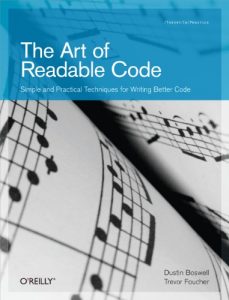As programmers, we’ve all seen source code that’s so ugly and buggy it makes our brain ache. Over the past five years, authors Dustin Boswell and Trevor Foucher have analyzed hundreds of examples of "bad code" (much of it their own) to determine why they’re bad and how they could be improved. Their conclusion? You need to write code that minimizes the time it would take someone else to understand it—even if that someone else is you.
This book focuses on basic principles and practical techniques you can apply every time you write code. Using easy-to-digest code examples from different languages, each chapter dives into a different aspect of coding, and demonstrates how you can make your code easy to understand.
- Simplify naming, commenting, and formatting with tips that apply to every line of code
- Refine your program’s loops, logic, and variables to reduce complexity and confusion
- Attack problems at the function level, such as reorganizing blocks of code to do one task at a time
- Write effective test code that is thorough and concise—as well as readable
"Being aware of how the code you create affects those who look at it later is an important part of developing software. The authors did a great job in taking you through the different aspects of this challenge, explaining the details with instructive examples."
—Michael Hunger, passionate Software Developer






